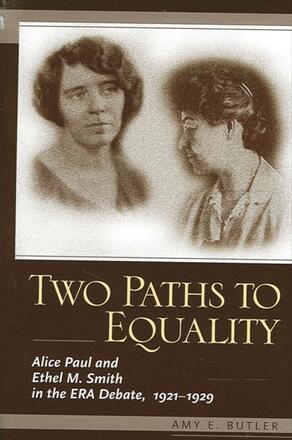
Two Paths to Equality
Alice Paul and Ethel M. Smith in the ERA Debate, 1921-1929
Alternative formats available from:
A comprehensive look at the ERA debates of the 1920s.
Description
In Two Paths to Equality, Amy E. Butler provides a fascinating portrait of two of the major adversaries in the 1920s' battle over equal rights legislation for women in the United States—Alice Paul and Ethel M. Smith. While they shared the goal of full political and legal equality for women, they differed on how best to achieve it. Paul, the author of the Equal Rights Amendment (ERA) and leader of the National Woman's Party, fought to establish that women were the same as men under the law. Smith, legislative secretary of the National Women's Trade Union League and a recognized leader of the opposition to the ERA, believed the ERA did not adequately consider the impact of class and economic differences in women's lives and consequently would sacrifice the interests of one group of women to another. Smith and Paul's conflict is a telling story of the inextricable relationship between personal politics, collective action, and the intersection of law and culture on the social construction of gender. Comparing their perspectives on equality creates a new understanding of the people and issues at stake in the ERA debate.
Amy E. Butler is an independent scholar who resides in Washington, D. C. and a former member of the National Woman's Party Board of Directors.
Reviews
"This book offers fresh insights into the shifting coalitions that have driven feminist activism in the U. S. and into the evolution of the social welfare state in this country. This is an intriguing and significant book. " — Annelise Orleck, author of Common Sense and a Little Fire: Women and Working-Class Politics in the United States, 1900–1965
"This careful study illuminates our understanding of the early debate over the Equal Rights Amendment by viewing it from the perspective of two advocates of women's equality who took different sides of the debate. Butler's biographical approach puts flesh and blood on a debate that still resonates among those policy makers who are trying to design legislation to achieve greater equality for women in the workplace. " — Kathryn Kish Sklar, author of Florence Kelley and the Nation's Work: The Rise of Women's Political Culture, 1830–1900